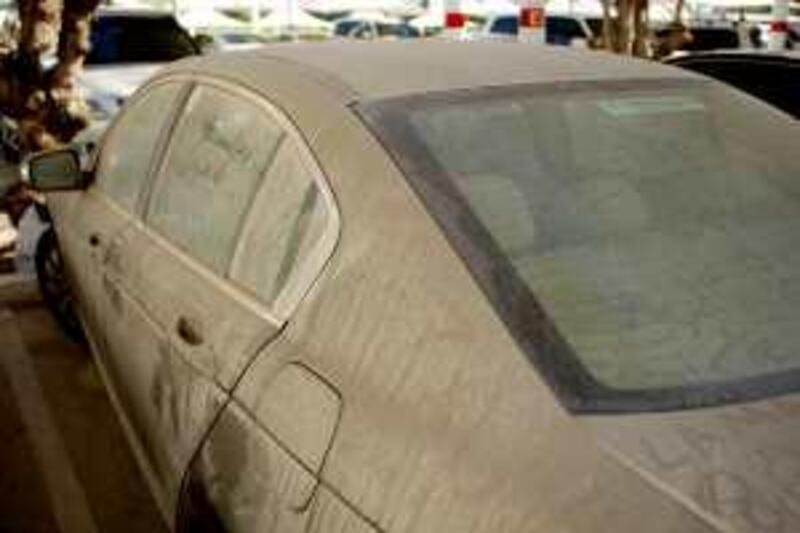More than 3,000 cars have been abandoned by owners to escape loan payments, just over double the figure in 2007, a senior police official has revealed. Banks are now being forced to try to claw back some of their money by selling them at auctions or through car dealerships. One bank official said it was becoming a concern to banks, many of whom have tightened up criteria for issuing loans. Customers with credit cards have also seen their limits reduced.
Police recently removed 22 cars dumped at Dubai International Airport after owners fled the country leaving a trail of debt behind. Cars have also been abandoned at Abu Dhabi International Airport. "Under the current financial situation, people who do not have the means may decide this is their only way out," said Col Saif Muhair Al Mazrouei, deputy director of traffic department at Dubai Police. In Dubai last year 3,241 cars were claimed by the banks, he said. Of these 466 had been impounded by police. "The percentage of such incidences rose last year. In 2007, 1,450 cars were claimed by banks. In 2008, the number increased by 123 per cent," he said.
Police issue warrants against owners of abandoned vehicles and banks said they actively pursued anyone defaulting on payments. "The person could be arrested on his way in or out of the country," said Mr Mazrouei. "They will not be able to return to the country before paying off any impending debts." A UAE bank official, who requested anonymity, said people who dumped their cars and fled the country were known as "skips".
"This isn't unusual here," he said. "A lot of times people just leave. You get a credit card and loans and then you lose your job. What to do? Go home. It's something that all banks are facing. "There are certain terms and conditions agreed to. Of course, the bank would go all out to get the guy, like using collection agents. I can tell you that collection agents at all banks are really busy right now."
Around 65 cars were seized at the end of last year from Dubai International Airport. But Brig Ahmed Bin Thani, director of airport security at Dubai Police, said not all were claimed by banks. "Some travel under emergency circumstances, some decide to rent a car, others may just be careless. There are some individuals who come a year or two later to inquire about their vehicles." A spokesman for Abu Dhabi Airport said it occasionally saw abandoned cars, but security checks were carried out in the car parks three times a day.
Vehicles are only released to banks after they pay all traffic fines incurred. "The banks have to pay all the traffic fines on the car before it is released to them to sell. They issued the car loan and it is their responsibility," Mr al Mazrouei said. Once released to the bank, the seized cars will end up as lots in an auction or on the floor of car showrooms. Golden Belt, an auction house based in Al Aweer, Dubai, holds car auctions every week where many cars taken back by banks are sold off. Among them are expensive sports cars such as Porsches and BMWs. Imran Sarfaz, the managing director for Romeo Car Showroom, is a regular visitor and is always on the lookout for a bargain to buy for his used car business. "Most of the cars auctioned off by the banks are hi-tech cars priced over Dh150,000," he said. "The prices are all right." Andrea Jaishankar, an HSBC spokeswoman, said the bank had "always adopted a prudent approach when lending". "Our credit policies ensure that risk is minimised by only lending to customers who we believe have the willingness and ability to repay," she said. She added that should customers leave without paying off the loan, the bank runs debt recovery procedures "as per prevailing laws in each country that it operates in. If required, we will work with relevant law enforcement authorities to take action based on the merits of each case." Ibrahim al Sukhi, the general manager of Credit Rating and Collection, a subsidiary of Al Qudra Holdings, a collection agency employed to recover debts, said his services were much in demand with the number of clients on the increase. He said the rising numbers of cars being abandoned at airports was "symptomatic" of the number of people "living beyond their means" and getting heavily into debt. "We are doing a lot of marketing on this now, trying to educate people on managing their finances. Many people are leaving the country and, in turn, leaving their debts and cars behind. Unless we have the power to be involved, this will just get worse." rabubaker@thenational.ae






